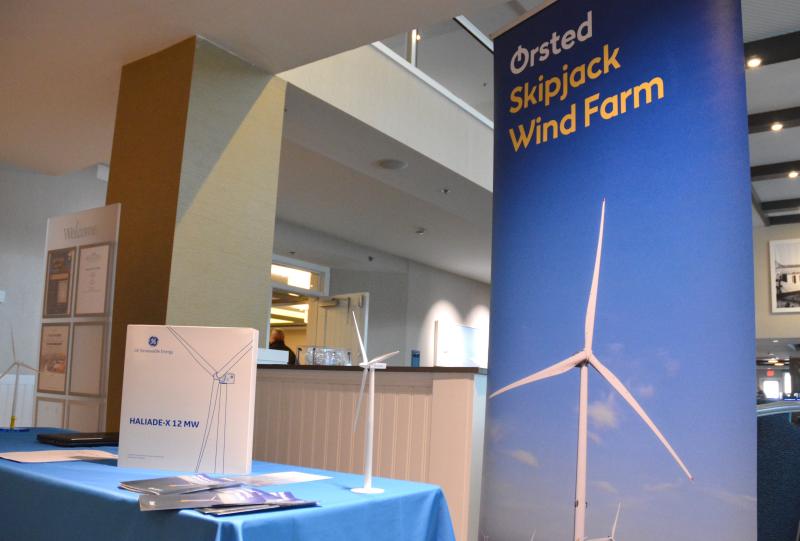Ørsted seeks better terms for Skipjack Wind project
For the second time in recent months, Danish power company Ørsted has announced that macroeconomic reasons have forced a major change to the future of one of its offshore wind projects near Delaware.
In late October, the company announced it was no longer pursuing wind farms off the coast of New Jersey due to high inflation, rising interest rates and supply chain bottlenecks that have changed dramatically over a short period of time.
The company cited the same reason Jan. 25 when it announced it has withdrawn from Maryland Public Service Commission orders approving the Skipjack Wind project, which is a combined 966-megawatt project in development off the Delaware coast. However, unlike the project in New Jersey, the company said it still intends to continue advancing development and permitting for the project, including submission of its updated Construction and Operations Plan to the Bureau of Ocean Energy Management, the federal agency that oversees the approval process.
“As we explore the best path forward for Skipjack Wind, we anticipate several opportunities and will evaluate each as it becomes available. We will continue to advance Skipjack Wind’s development milestones, including its Construction and Operations Plan,” said David Hardy, group executive vice president and CEO Americas at Ørsted, in a prepared statement.
Ørsted said the recent action follows an extensive review of the orders with Maryland. The payment amounts for Offshore Renewable Energy Credit set forth in the orders are no longer commercially viable because of today’s challenging market conditions, said the company’s release.
Maddy Voytek, head of government affairs and market strategy for Ørsted, said the company maintains a high confidence in Skipjack Wind’s ability to deliver value and anticipate opportunities to compete for regional offtake opportunities in the near term.
“We will evaluate these opportunities as they emerge and will continue to advance the combined project’s Construction and Operations Plan,” said Voytek, in a Jan. 26 email. “The broader mid-Atlantic region holds tremendous potential for development of nearly every aspect of the offshore wind industry.”
Possible opportunities include continuing to work with Maryland or Delaware, which has positioned itself to play a role in the continued development of the offshore wind industry in the mid-Atlantic both as a strategic interconnection hub and potential offtaker, said Voytek.
Voytek said the actions taken for the projects off New Jersey and Delaware are different. The decision on the New Jersey project included the stoppage of construction, further investments, spending and nearly all activity on the projects while the company assesses the best way to preserve value, she said.
“This is not the case for Skipjack Wind,” said Voytek. “Work will continue to develop and submit Skipjack’s revised COP to best position the project for future offtake opportunities in the region.”
It’s unclear how long Ørsted will continue to pursue the Skipjack Wind project without having a new partner. Voytek said Ørsted maintains high confidence in the potential of the project to deliver value and expect multiple offtake opportunities to emerge in the future.
“Ørsted does not need an offtake arrangement to submit a Construction and Operations Plan. Indeed, other developers have submitted COPs to permit areas anticipating future procurements,” said Voytek.
Chris Flood has been working for the Cape Gazette since early 2014. He currently covers Rehoboth Beach and Henlopen Acres, but has also covered Dewey Beach and the state government. He covers environmental stories, business stories, random stories on subjects he finds interesting and has a column called ‘Choppin’ Wood’ that runs every other week. Additionally, Chris moonlights as the company’s circulation manager, which primarily means fixing boxes during daylight hours that are jammed with coins, but sometimes means delivering papers in the middle of the night. He’s a graduate of the University of Maine and the Landing School of Boat Building & Design.






















































